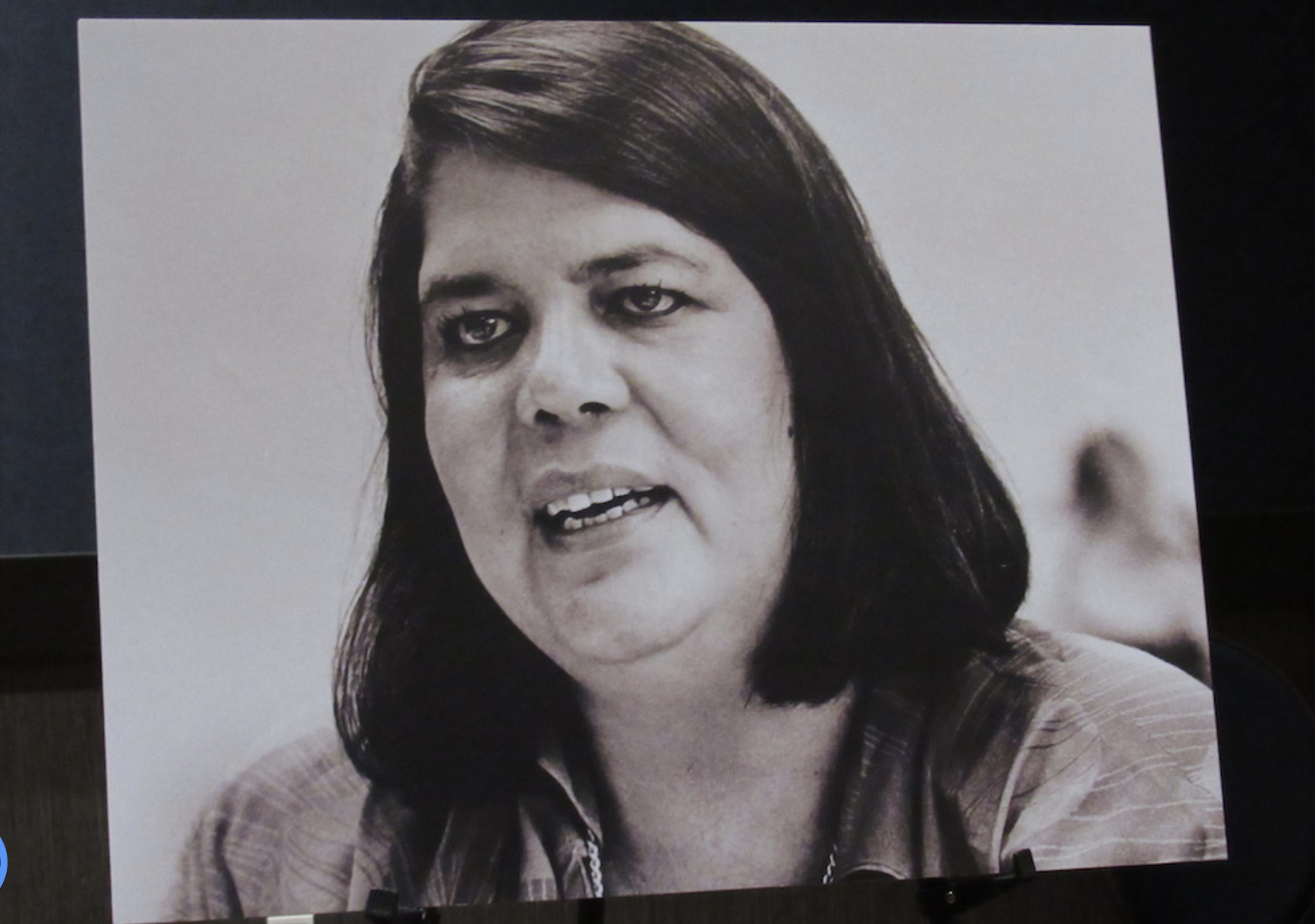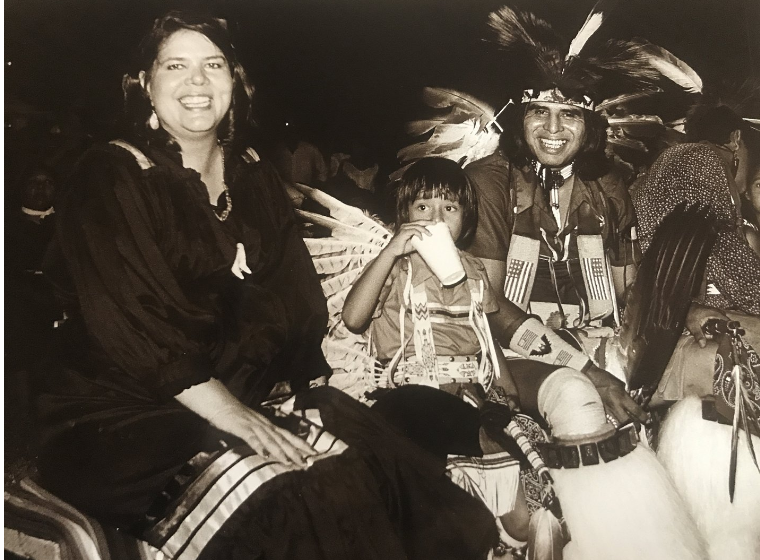
- Details
- By Levi Rickert
During the month of March, in recognition of Women's History Month, Native News Online will feature various Native American women who have contributed to the betterment of Indian Country.
Wilma Pearl Mankiller (November 14, 1945 - April 6, 2010)
Wilma Pearl Mankiller was the first woman to serve as principal chief of the Cherokee Nation. She served as principal chief from 1985 to 1995. She is credited in bringing great transformation of progress for the Cherokee Nation during her administration.
She was born to Charley Mankiller and Clara Irene Sitton on November 18, 1945 in Tahlequah, Oklahoma, the capital of the Cherokee Nation. Mankiller was the sixth of eleven children born to the couple.
Her family became part of the Bureau of Indian Affairs’s relocation program that moved Native Americans from their reservations or tribal lands to become assimilated in large cities. The Mankiler family moved to San Francisco when Wilma was 11 years old.
Recalling this period of her life, Mankiller told The New York Times in a 1993 interview the move was her “own little Trail of Tears,” in reference to the forced relocation of thousands of Cherokees beginning in the 1830s. Her father became a warehouse employee and joined a union where he became an organizer.
When a group of Native Americans took over Alcatraz Island in the San Francisco Bay, a young Mankiller, in her early 20s, became involved by helping to get supplies from the mainland to the Native American occupiers on the island.
“When Alcatraz occurred, I became aware of what needed to be done to let the rest of the world know that Indians had rights, too.” Mankiller wrote in autobiography, Mankiller: A Chief and Her People, with Michael Wallis.
In 1976, after a divorce, Mankiller and her two daughters moved back to Oklahoma where she used her skills she learned as an Alcatraz organizer and directed the Community Development Department for the Cherokee Nation. She made her mark by working with the Bell, Oklahoma, a small Cherokee community with 200 residents, to get a 16-mile waterline construction completed in just over a year sot that they could have running water.
Mankiller’s talents to get things accomplished caught the attention of Principal Chief Ross Swimmer who convinced her to run for deputy chief in 1983. In 1985, Swimmer, after serving as principal chief of the Cherokee Nation for a decade, was selected to serve as the assistant secretary of the Interior. Mankiller then became principal chief.
In June 2022, Swimmer reflected on how he asked Mankiller in 1983 to serve as the deputy chief of the Cherokee Nation during his administration. She agreed to run for the position, but told him if he left office before their four-year term was up, she would be out the door with him.
During her administration, Mankill is credited for tripling the Cherokee Nation’s tribal enrollment, doubling employment and the development of new housing, health centers and children’s programs.

Current Principal Chief Chuck Hoskin, Jr. says every principal chief since Mankiller is measured against her greatness.
“Once she took office, once she became chief, she just kept changing the world. Even years after her passing, Wilma Mankiller is still making an impact. She's not changing the world on this day simply because her likeness is being struck on the quarter. Her likeness is being struck on the quarter because she keeps changing the world for the better,” Hoskin said.
Mankiller was bestowed the Presidential Medal of Freedom, the highest civilian award in the United States in 1998 by President Bill Clinton. In June 2022, Mankiller was honored by the U.S. Mint when she was featured on a quarter that was part of its American Women Quarters Program.
Mankiller walked on from pancreatic cancer on April 6, 2010 at her home in rural Adair County, Oklahoma.
More Stories Like This
Native News Weekly (August 25, 2024): D.C. BriefsNavajo Nation Mourns the Passing of Former Vice President Rex Lee Jim
Deb Haaland Earns Endorsement From Communications Workers of America Local 7076
University Soccer Standout Leads by Example
Two Native Americans Named to Democratic Congressional Campaign Committee's“Red to Blue” Program
Help us defend tribal sovereignty.
At Native News Online, our mission is rooted in telling the stories that strengthen sovereignty and uplift Indigenous voices — not just at year’s end, but every single day.
Because of your generosity last year, we were able to keep our reporters on the ground in tribal communities, at national gatherings and in the halls of Congress — covering the issues that matter most to Indian Country: sovereignty, culture, education, health and economic opportunity.
That support sustained us through a tough year in 2025. Now, as we look to the year ahead, we need your help right now to ensure warrior journalism remains strong — reporting that defends tribal sovereignty, amplifies Native truth, and holds power accountable.
 The stakes couldn't be higher. Your support keeps Native voices heard, Native stories told and Native sovereignty defended.
The stakes couldn't be higher. Your support keeps Native voices heard, Native stories told and Native sovereignty defended.
Stand with Warrior Journalism today.
Levi Rickert (Potawatomi), Editor & Publisher


